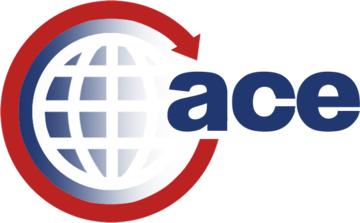ACE Manifest Software User Guide (CBP)
| This article is part of the BorderConnect ACE Manifest Guide |
The Automated Commercial Environment (ACE) is U.S. Customs and Border Protection's (CBP) electronic manifest program. It is intended to facilitate trade while strengthening border security.[1] Since 2007, highway carriers have had to comply with ACE eManifest requirements when bringing goods into the United States by filing an ACE eManifest at least one hour prior to arrival at the border.

BorderConnect's ACE eManifest software offers an extremely user-friendly web-based solution to comply with eManifest requirements, complete with 24/7 technical support.
ACE Manifest Requirements
Under ACE Manifest regulations trucks must ensure that BOTH the ACE Manifest and the entry number by the customs broker (for PAPS shipments) are on file with CBP for at least one hour prior to the driver's arrival at the border. Failure to do so could result in delays at the border, refused entry into the U.S. and/or penalty action. Users can also process and submit an ACE Manifest up to 30 days in advance of the driver crossing the U.S. Port of Entry.
When arriving at the border in the United States, the driver must present customs paperwork (ie customs invoice and/or Bill of Lading) with a legible trip number or shipment control number. Although CBP officers capture the trip information from the truck license plate, a PAPS barcode and/or barcoded ACE lead sheet can expedite the border processing time and also helps the officer to bring up the ACE Manifest in their system.
The officer will then verify the information is correct, and it is their discretion to move the driver to secondary inspection or not for further verification. CBP officers do not stamp paperwork upon release of the shipment, and the only way to prove that a shipment was released with CBP is to use a signed proof of delivery document.
ACE Manifest lead sheets can be generated from within BorderConnect, either from the manifest or as a set ahead of time. The carrier can also design and produce their own lead sheets.
ACE Truck Manifest Modernization
On January 30, 2022 U.S. Customs and Border Protection (CBP) began the multi-release deployment of Enhancements to ACE Truck Manifest - Phase 2, also known as ACE Truck Manifest Modernization (TMM). Enhancements to ACE Truck Manifest – Phase 2 is focused on enhancing the CBP user interface (UI) for the primary and secondary processing of truck manifests. As part of this deployment, previously relaxed validations in the legacy truck manifest application are now supported in TMM and may result in errors for some trade users. To prepare for the upcoming deployments and avoid potential errors, please review the validations as documented in the Truck Manifest X.12 – 309 and EDIFACT CUSCAR EDI implementation guides found at ACE Import Manifest Documentation. For additional information, please review CSMS #51405084.
Implementing the capabilities developed in Phase 2, deployment of Phase 3 enhancements will provide trade users with new messaging regarding modifications to Crew, Vehicle, Cargo and Seals. The Phase 3 deployment was set for July 11, 2022. More information on Phase 3 enhancements is available in the ACE Truck Manifest: Draft Chapters for Future Use implementation guides found on CBP.gov.
QR Code ACE Manifest Lead Sheet Requirements
In February of 2020 U.S. Customs and Border Protection (CBP) announced optional ACE Truck QR Barcode requirements which would help CBP uniquely identify the electronic filed manifest information associated with a conveyance, minimize actions required of a driver and maximize match probability.[2]
As part of the Privacy Impact Assessment Update for the Automated Commercial Environment (ACE) Modernization in September of 2023[3], CBP provided detailed information on the benefits and roll out of QR barcodes and RFID technology, specifically with ACE Truck Manifest.
In July 2024 CBP emailed all stakeholders and highway carriers that cross from Mexico to the United States that on August 11, 2024 CBP will require all carriers to provide a QR code ACE Manifest lead sheet at the Port of Laredo. A referenced guide was provided as well, which provided the technical specifications of what information needs to be provided on the QR barcode and the format.[4]
Getting Started
The first step is create profiles for any drivers, trucks and trailers that may be crossing the border. The information in these profiles will be used to complete mandatory fields on your manifests. It is recommended that you enter the profile information ahead of time to facilitate creating eManifests. Please refer to the individual sections for instructions on entering and maintaining:
Once you are registered to use ACE with BorderConnect and you have created the driver, truck and trailer profiles, you are ready to begin creating and submitting eManifests to Customs!
ACE Manifest Instructions
Please refer to the individual sections for complete instructions on the following:
- Creating and submitting a new ACE Manifest
- Correcting rejected ACE Manifests
- Updating or correcting an accepted manifest
- Updating a manifest when the driver has already arrived at the border
- ACE Manifest Status Guide
- Creating your own bonds in ACE
- Creating and tracking your own In-Bond sequences
- How to create a split shipment in ACE
- Manifesting different types of shipments
- Uploading large volume of shipments using CSV upload feature
- U.S. In-Bond Manager Guide for CBP
- Creating and Managing Insurance Policies
ACE Manifest Tutorial Videos
References:
- ↑ https://www.cbp.gov/trade/automated
- ↑ https://www.cbp.gov/sites/default/files/assets/documents/2020-Mar/Truck%20Manifest%20QR%20Specifications%20Document%20%28002%29.pdf
- ↑ https://www.dhs.gov/sites/default/files/2023-09/23_0926_privacy-p%E2%81%AEia-cbp003c-acemodernizations.pdf
- ↑ https://www.cbp.gov/sites/default/files/assets/documents/2020-Mar/Truck%20Manifest%20QR%20Specifications%20Document%20%28002%29.pdf